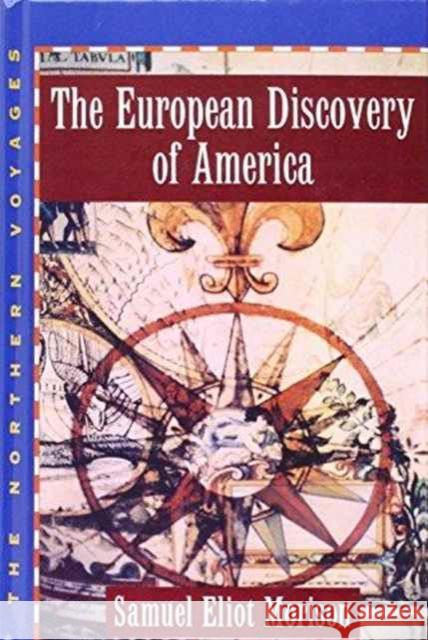The European Discovery of America: Volume 1: The Northern Voyages A.D. 500-1600 » książka
The European Discovery of America: Volume 1: The Northern Voyages A.D. 500-1600
ISBN-13: 9780195013771 / Angielski / Twarda / 1971 / 730 str.
The late Samuel Eliot Morison, a former U.S. Navy admiral, was also one of America's premier historians. Combining a first-hand knowledge of the sea and transatlantic travel with a brilliantly readable narrative style, he produced what has become nothing less than the definitive account of the great age of European exploration. In his riveting and richly illustrated saga, Morison offers a comprehensive account of all the known voyages by Europeans to the New World from 500 A.D. to the seventeenth century. Together, the two volumes of The European Discovery of America tell the compelling stories of the many intrepid explorers who made what was then a journey frought with danger--figures as diverse as Leif Ericsson, Columbus, John Cabot, Jacques Cartier, Martin Frobisher, Magellan, Sir Walter Raleigh, and Sir Francis Drake to name but a few. They also follow the adventures of lesser-known but no less interesting mariners and offer a detailed look at those who set them forth on their travels.
In the first volume, The Nrthern Voyages--winner of the prestigious Bancroft Prize for History--Morison re-creates the lives and perilous times of those who claimed to have seen the shores of North America in the 600 years after the Norsemen first landed. He brings to his account a rare immediacy, making the drama and unpredictability of their voyages as significant in relation to the people of their era as the astronauts' journeys have been for our own times. Morison also offers a fascinating look at the imaginary lands reported by early travelers (such mythical places as Antilia and the Seven Cities, the glorious Kingdoms of Norumbega and Saguenay, and Hy-Brasil the Isle of the Blest) and examines as well the alleged discoverers of these lands. With warmth and wit he distinguishes fact from fiction, and imaginary explorers and their exploits from actual men and events.
In the second volume, Morison turns his attention to the navigators who negotiated the waters of the Caribbean and the treacherous coasts of South America, even following them as they ventured ashore to the dark inland of the southern continent. The Southern Voyages begins with the events leading up to Columbus's arrival in San Salvador in 1492 and concludes with the discovery of the southernmost bit of land, Cape Horn, by Dutch explorers in 1616. In between, Morison retraces the routes of all the great mariners, including a step-by-step account of Magellan's voyage that would take him around the world. Morison has enlivened his narrative with a wide range of source material from Italy, Spain, Portugal, and South America, in the process shedding new light on questions that have divided scholars througout history: Did Sir Francis Drake discover San Francisco Bay? Was Amerigo Vespucci a great explorer or a fraud--or a little of both? What role did the French have in the European discovery of Brazil?
Each volume brims with contemporary illustrations, maps (many of them specially drawn for this history) and photographs (often taken by Morison himself as he flew at low altitude along the coastal routes of explorers), which together identify virtually every allusion to land and sea made by the great European navigators in their ship logs and their later accounts.
With the 500th anniversary of the European arrival in America came much controversy over Columbus's true legacy. With its lively and engaging style, and with its unsurpassed understanding of the age, The European Discovery of America helps put the era of exploration in much-needed perspective. Anyone interested in the history of America, indeed, in the history of Western Civilization, will find these volumes absolutely essential.











